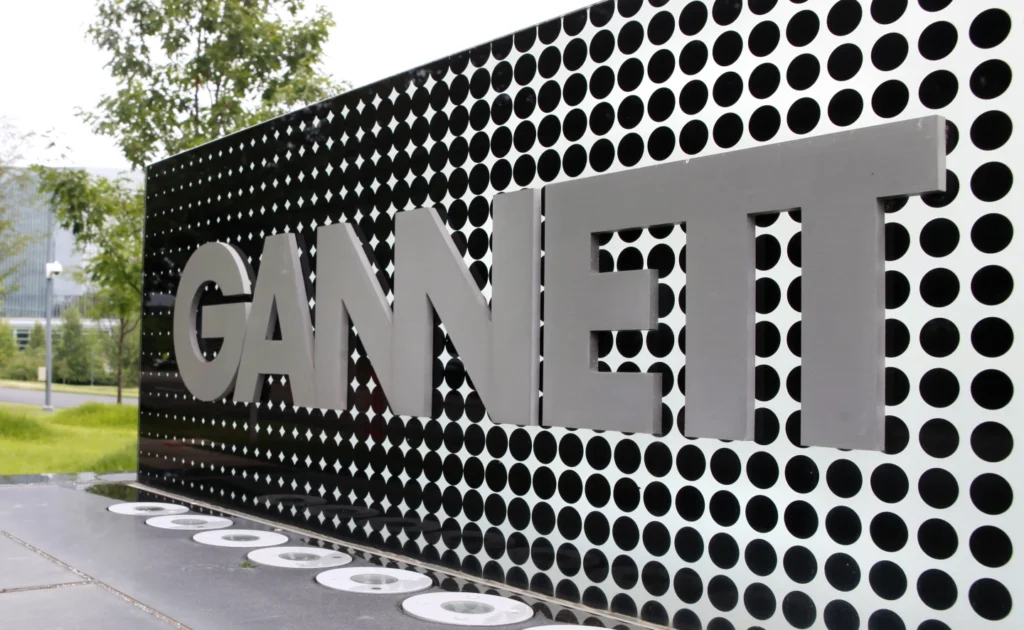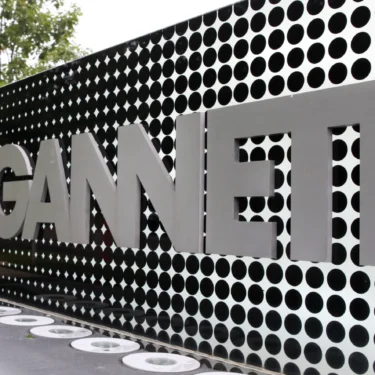BY DAVID BAUDER, The Associated Press
NEW YORK (AP) — The Gannett and McClatchy news chains, publishers of more than 230 outlets including USA Today and the Miami Herald, have said they will stop using journalism from The Associated Press amid continued financial pressures for the news industry.
The decision by Gannett, the nation’s largest newspaper chain, severs a century-old partnership. It “enables us to invest further in our newsrooms,” Gannett spokeswoman Lark-Marie Anton said on Tuesday.

A memo from Gannett’s chief content officer Kristin Roberts directed the chain’s editors to stop using stories, videos and images provided by AP on March 25. The memo, obtained by The Associated Press, was first reported by The New York Times.
Shortly after, AP said it had been informed by McClatchy that it would also drop the service. A McClatchy spokesperson did not immediately return messages seeking comment.
Like most newspaper companies, Gannett and McClatchy have been struggling financially for several years. Gannett’s workforce shrank 47% between 2020 and 2023 because of layoffs and attrition, according to the NewsGuild. The company also hasn’t earned a full-year profit since 2018, according to data provided by FactSet. Since then, it has lost $1.03 billion. The hedge fund Chatham Asset Management took control of the formerly family-owned McClatchy, with outlets in 30 U.S. markets, in a bankruptcy auction in 2020.
The AP was disappointed, considering there had been productive discussions with both news organizations, spokeswoman Lauren Easton said. The news cooperative remains hopeful that both chains would continue to support AP beyond their current contracts, she said.
“We appreciate that these are difficult decisions to make and deeply understand the challenges the news industry faces,” Easton said. “At the same time, this would be a disservice to news consumers across the U.S. who would no longer see fact-based journalism from the AP.”
Those involved would not specifically discuss how much money the news chains would save by this move, although it is likely to be in the millions of dollars.
In an earlier era, when fees from U.S. newspapers provided AP with virtually all of its revenue, such decisions would have represented a financial earthquake for the news cooperative. But AP has diversified its services with the decline of newspapers and U.S. newspaper fees now constitute just over 10% of its annual income.
With reporters in all 50 states and nearly 100 countries, The Associated Press provides news through text, still photography, audio and video for news organizations that can’t afford such reportorial reach on their own. The company says that AP’s journalism is seen by over half the world’s population every day.
The AP won two Pulitzer Prizes last year for its coverage of the Ukraine war. Partnering with PBS’ “Frontline,” AP last week won its first Academy Award, with the film “20 Days in Mariupol” honored as best documentary feature.
AP’s diversification efforts include offering its journalism directly to consumers through an advertising-supported website. The company also provides production services and software to newsrooms across the world. This week, AP launched an e-commerce site called AP Buyline, run by the company Taboola, that provides product content and reviews for consumers.
Gannett said it would continue paying for two of AP’s most visible services: its extensive election-related polling and vote-counting, and the AP Stylebook that sets guidelines for journalism practices and word usage. It said it has signed an agreement with Reuters to provide news from around the world in multiple formats, including video.
“Key to this initiative is ensuring that we extend the reach of the work we do to more readers, viewers and listeners nationwide,” Roberts said in her memo.
With a contract for AP’s content that lasts to the end of 2024, it was not clear why Gannett is choosing to cut things off next week. While there remains the possibility that it represents a negotiating tactic for AP to lower its fees, Anton said she was not aware of any contract negotiations.
McClatchy’s latest contract with AP was due to expire early next year, Easton said.
By David Bauder




